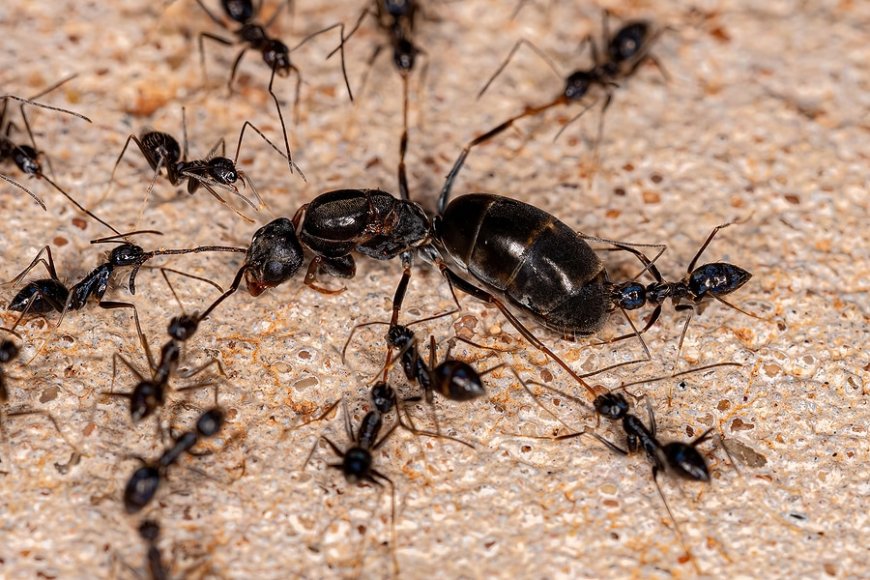Kenyan & Foreigners Fined Ksh1 Million For Trying To Smuggle 5,000 Ants Through JKIA
The Belgian suspects were caught on April 5, 2025, at a guesthouse in Naivasha, Nakuru County, with around 5,000 queen ants stored in over 2,200 tubes.

Five people — four foreigners and one Kenyan — have each been fined Ksh1 million or sentenced to one year in prison for trying to smuggle live queen ants through Jomo Kenyatta International Airport (JKIA).
Principal Magistrate Njeri Thuku of the JKIA Law Courts said the group attempted to sneak the insects past airport authorities. The offenders — two Belgians, one Vietnamese national, and a Kenyan — pleaded guilty to illegally possessing and trading in queen ants on April 14.
The Belgian suspects were caught on April 5, 2025, at a guesthouse in Naivasha, Nakuru County, with around 5,000 queen ants stored in over 2,200 tubes.
Authorities estimate the insects’ black market value at about Ksh1 million. They were formally charged with wildlife trafficking without a permit, violating Kenya’s Wildlife Conservation and Management Act.

Foreigners and a Kenyan in court on April 23, 2025 after being arrested for smuggling live ants. /ODPP
Meanwhile, the Vietnamese man and his Kenyan accomplice faced separate charges for holding and attempting to sell about 400 queen ants worth roughly Ksh200,000.
During an April 22 court session, prosecutors presented reports from the Kenya Wildlife Service and the National Museums of Kenya. The KWS report revealed the ants were smuggled in specially modified test tubes manufactured in China, tech designed to evade airport scanners and keep ants alive for months.
Authorities earlier said the contraband was likely destined for European markets, where a single queen ant can fetch between €60 and €100 (Ksh 9,000–Ksh 15,000), often used for high-end cuisine and niche pet collections.
One KWS officer had dismissed this as just an unorthodox crime, adding that it is a growing front in global wildlife trafficking that threatens local ecosystems and plays into a broader illegal trade in biological material.
KWS noted this case fitted a rising pattern of insect smuggling, with similar incidents flagged at JKIA and courier hubs in Nairobi, Gilgil, and Naivasha since 2019. Traffickers often mislabel shipments as wood carvings or toys to dodge inspections.
The prosecution also tabled a scientific report from the National Museums of Kenya, authored by a top entomologist. The report warned of the environmental damage caused by the mass harvesting of queen ants, including ecological imbalance, reduced soil health, and increased risk of invasive species.
Queen ants are sought after for their role in colony formation, pest control, and ecological importance. They are also popular among collectors who keep them in formicariums—special habitats that mimic their natural environment, making them a hot commodity in the underground wildlife trade.
Queen ants can fetch serious money— common types usually sell for Ksh 200 to Ksh 1,000, mid-range rare ones go for Ksh 1,500 to Ksh 5,000, and the most exotic or hard-to-capture queens can command prices as high as Ksh 6,000 to Ksh 15,000.
Smuggling queen ants is illegal under Kenya's Wildlife Conservation and Management Act 2013. This act, specifically Section 95(b), prohibits dealing in wildlife, including queen ants, without a permit.







